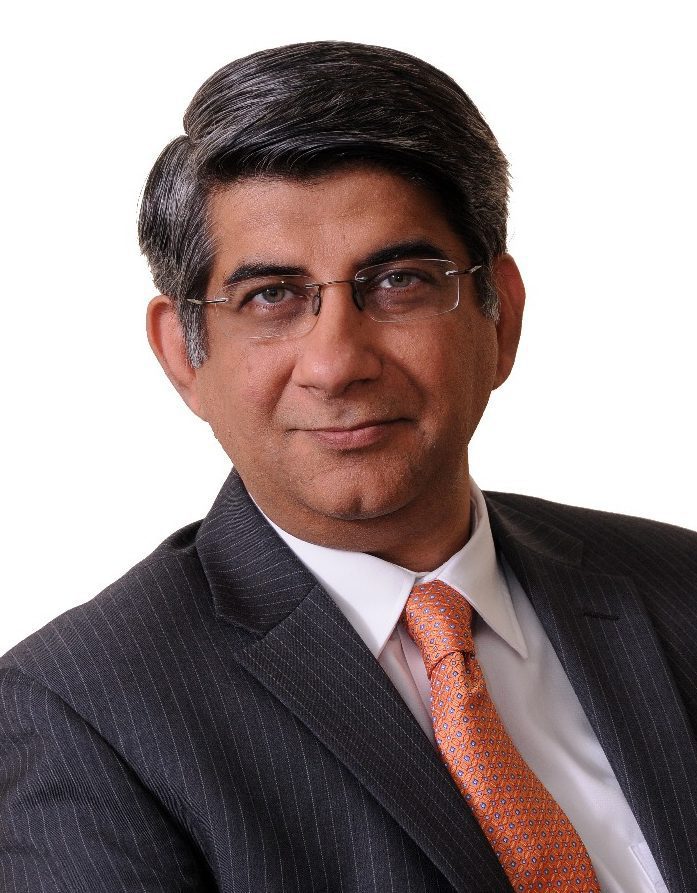
The pandemic keeps producing industrial winners and losers, and Mahindra Agriculture North America decidedly has become a winner. Over the last nine months, both Americans mired at home and those trickling out of cities to suburbs and exurbs have generated a surge of business for the India-based maker of lawn tractors and small agricultural tractors – a 25% increase in sales while Mahindra’s dealer inventories declined by 22%.
Mahindra has picked up market share during that time, as industry sales overall rose by 23%. The share gain, through its 500 dealers in the United States and Canada, is boosting No. 3 Mahindra closer in overall tractor sales to the U.S. leaders, Deere and Kubota.
“As people were stuck at home by the pandemic, tractor sales began to rise quickly, and over the last several months we’ve seen a pretty dramatic effect on our business,” Viren Popli, president and chief executive officer of Houston-based Mahindra Agriculture North America, told Chief Executive. “People decided they needed to fix and do more things at their house – home improvement. Coupled with the [government’s] financial assistance and low interest rates, there’s been new demand in this existing segment.”
Added to Americans primping their abodes have been those abandoning them for greener pastures in less-dense environments, Popli said. “We’re seeing a lot of people who are basically moving out of urban centers into semi-urban and suburban places,” he said. “It’s an interesting shift. Many of these people are buying large acreages and settling down.
“That’s accelerating what we used to see with a lot of people in retirement who would move out of the big city to get to a slower life and more of a community. Now we’re seeing that happen with a younger audience as well, with work-from-home and digital connectivity increasing. The concept of distance is vanishing.”
Yet another trend, present before but accelerated by Covid-19, is more Americans “growing their own food in small patches,” Popli said. “They have enough land where they want to put in small plots of vegetables and feed themselves to a greater extent.”
Mahindra is meeting this growing demand with a lineup of small tractors whose prices range from about $10,000 to about $78,000, with the average price between $20,000 and $30,000. Mahindra’s 125-horsepower machines are perfect for serving as secondary tractors on large farms and as primary workhorse machines on small hobby tracts, Popli said. Many of its models can be had for $20,000, Popli said, but the typical buyer ends up adding a handful of functional implements to get the most out of the machine, adding several thousand dollars to the tab. “They don’t just buy a tractor, because without all the implements it’s pretty useless,” he said.
Actually, Mahindra Agriculture has been satisfying this cohort of Americans for about 25 years. For the last several years, one of its big marketing outlets has been the Rush Limbaugh Show on syndicated radio. “Our audience seemed to work very well with him,” Popli said about the conservative talk-show leader. “People would come to our dealerships and say, ‘Rush sent me.’”
The giant industrial conglomerate leverages some advantages in competing in the United States, but they may not fit assumptions. Mahindra takes advantage not so much of labor-rate arbitrage by being located in a low-wage country but of the simple advantages of scale. “It’s the overall design aspect and what we put into it, and the structure we work with,” Popli said. “We’re the world’s largest farm-tractor manufacturer, so we have huge scale that gives us significant advantage.”
Mahindra generally imports the guts of its small tractors from a joint-venture assembly plant with Mitsubishi in Japan, and larger machines from Indian factories. “We bring the engine and transmission and hydraulics together” in these plants abroad, Popli explained. Tractors don’t have much of a chassis – as contrasted with automobiles. “Local elements” for North American tractors, including tires and batteries, are added at Mahindra plants in Pennsylvania and California as well as its “mother plant” in Houston. Optional implements are joined to the base machines in those U.S. facilities as well. Mahindra also has a U.S. tech center for the automotive business, in the Detroit area.
Mahindra is one of the most advanced users of electric propulsion for its vehicles in India, but any transition to EVs “is a little further out for tractors than it is for cars,” Popli said. “In a car battery power is used when you’re accelerating, but after that you use much less battery power because you’re just maintaining speed and overcoming existing friction. But on a field a tractor is using full power continuously, so the load dynamics on the battery are very different than for a car.”







